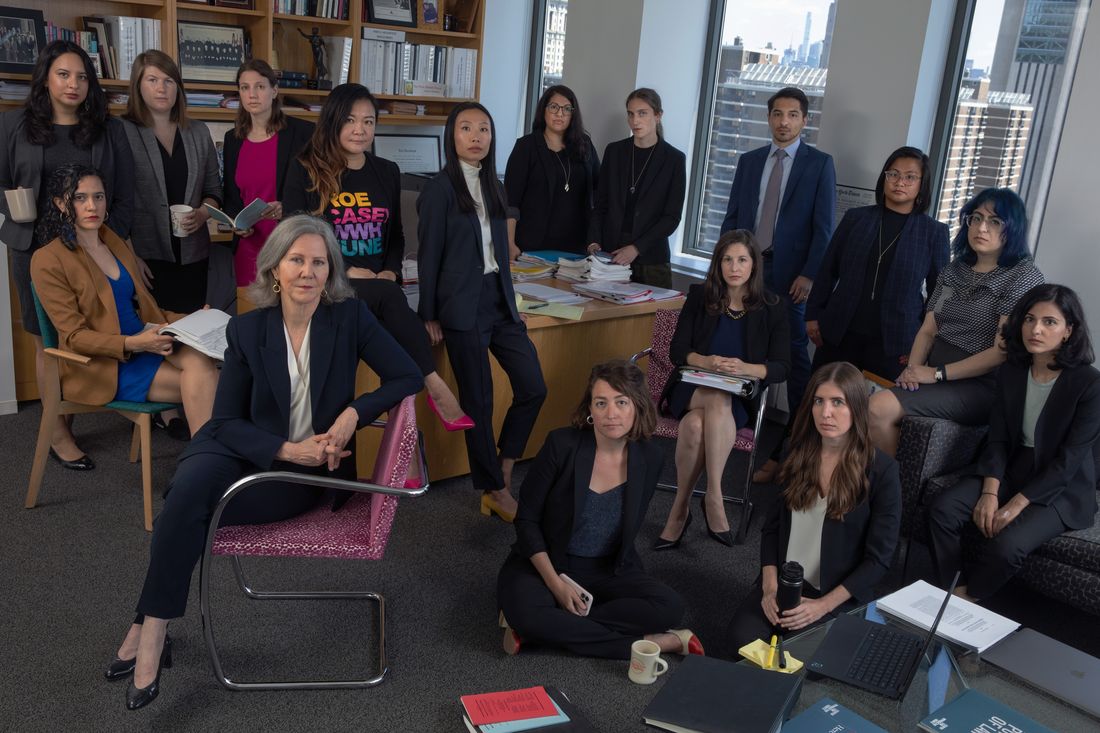Mississippi is just hours from banning abortion in most instances, but an eleventh-hour lawsuit before a special state judge could at least temporarily delay the “trigger law” from going into effect.
The Mississippi Supreme Court ruled in 1998 that abortion is a protected right under the state Constitution and that right cannot be taken away unless the state’s high court reverses itself, attorneys representing the state’s only abortion clinic told a chancery judge on Tuesday.
Based on that 1998 ruling, Jackson attorney Rob McDuff asked Chancery Judge Debbra Halford of Franklin County to issue an injunction preventing laws that would ban most abortions in Mississippi from taking effect. McDuff and Hillary Schneller, senior staff attorney for the Center for Reproductive Rights, represented Jackson Women’s Health Organization in the lawsuit.
“The primary issue before you is whether the decision of the Mississippi Supreme Court is binding and we clearly believe it is,” McDuff said Tuesday morning during a hearing in the Hinds County Chancery Court Building that lasted about 45 minutes.
READ MORE: Hearing set in Mississippi lawsuit trying to prevent abortion ban
Mississippi Solicitor General Scott Stewart, arguing on behalf of Attorney General Lynn Fitch, told Halford that the 1998 state Supreme Court ruling was no longer binding law because of the recent landmark decision of the U.S. Supreme Court overturning the Roe v. Wade decision and the Casey v. Planned Parenthood decision that enshrined in the U.S. Constitution the right to an abortion.
“They depend on Roe and Casey. There is no Roe and Casey anymore. And there is no Fordice,” Stewart said referring to the 1998 state Supreme Court ruling titled Pro-Choice Mississippi v. Kirk Fordice.
After the hearing, Halford said she would soon issue a decision regarding whether to grant the temporary restraining order allowing abortions to continue to be performed in Mississippi. But at this time, she will not rule on the actual merits of the case.
It is likely her decision will be appealed by the losing side to the state Supreme Court.
As the issue is litigated, though, the clock is ticking on abortion rights in Mississippi. A trigger law would take effect on Thursday banning all abortions in the state except in cases where it is determined the life of the mother is at risk or in cases where there is rape reported to law enforcement. Another Mississippi law that would take effect based on the U.S. Supreme Court ruling would ban all abortion after six weeks except in cases of medical emergencies.
But on Tuesday in the hearing attended by about 50 spectators with a handful of protesters outside the courthouse, McDuff told the chancery judge that the state Supreme Court ruling would supersede the laws and she did not have the authority to ignore Mississippi’s highest court.
He conceded the current Supreme Court could reverse its 1998 ruling.
Stewart did not try to argue that the 1998 ruling did not say abortion was a right under the state Constitution. Instead, he argued that the majority in 1998 ruled that abortion was a right under the state Constitution to be in alignment with the federal Supreme Court in the Roe v. Wade decision.
But McDuff said nowhere in the ruling was any reference made to the state Supreme Court decision being contingent on the Roe v. Wade decision. He said in other rulings, the state Supreme Court had ruled that the rights granted in the Mississippi Constitution did not “inflate or deflate like a balloon” based on the rulings of the U.S. Supreme Court.
McDuff pointed out to the court that abortion had been legal for a vast majority of Mississippi’s statehood and that the judge should block the enactment of the laws banning abortion to give the Mississippi Supreme Court time to rule on the issue.
Stewart argued that it would not be a hardship to allow the laws to go into effect. He said programs had been put in place, such as pregnancy counseling programs, to help mothers who might otherwise had wanted to have an abortion.
Halford is hearing the case because all four Hinds County chancery judges recused themselves.
READ MORE: Supreme Court could assure abortion ban in Mississippi, or people could vote
Close window
Republish this article
For digital publications:
- Look for the “Republish This Story” button underneath each story. To republish online, simply click the button, copy the html code and paste into your Content Management System (CMS).
- Editorial cartoons and photo essays are not included under the Creative Commons license and therefore do not have the “Republish This Story” button option. To learn more about our cartoon syndication services, click here.
- You can’t edit our stories, except to reflect relative changes in time, location and editorial style.
- You can’t sell or syndicate our stories.
- Any web site our stories appear on must include a contact for your organization.
- If you share our stories on social media, please tag us in your posts using @MSTODAYnews on Facebook and @MSTODAYnews on Twitter.
For print publications:
- You have to credit Mississippi Today. We prefer “Author Name, Mississippi Today” in the byline. If you’re not able to add the byline, please include a line at the top of the story that reads: “This story was originally published by Mississippi Today” and include our website, mississippitoday.org.
- You can’t edit our stories, except to reflect relative changes in time, location and editorial style.
- You cannot republish our editorial cartoons, photographs, illustrations or graphics without specific permission (contact our managing editor Kayleigh Skinner for more information). To learn more about our cartoon syndication services, click here.
- Our stories may appear on pages with ads, but not ads specifically sold against our stories.
- You can’t sell or syndicate our stories.
- You can only publish select stories individually — not as a collection.
- Any web site our stories appear on must include a contact for your organization.
- If you share our stories on social media, please tag us in your posts using @MSTODAYnews on Facebook and @MSTODAYnews on Twitter.
If you have any other questions, contact Audience Development Director Lauchlin Fields.
1



